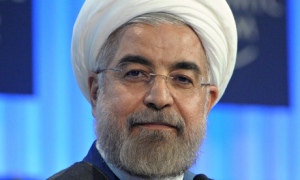Hopes are clearly fading that Rouhani will deliver on human rights, as yesterday’s Iranblog on the Guardian website explains. Below is an extract: for the full post see link.
Tehran University’s outspoken professor, Sadegh Zibakalam, was asked recently in a heated debate on national radio why he fought to overthrow the Shah and endured two-year jail sentence.
Furious about Zibakalam’s views on foreign policy, especially his support for normalising ties with the US, the hardline MP Hamid Rasaei sought to embarrass him by reminding the true origins of his political life – as a political prisoner under the US-backed Shah – and what he had stood for then. Rasaei said: “This Zibakalam is different from the one from before the revolution.”
Zibakalam turned the tables on him. He answered: “[Under the Shah] I went to jail so that we wouldn’t have political prisoners any more. So that we would have free elections. So that we would have freedom of press. So that Evin could be shut down.”
Thirty-five years since Iranians deposed the late Shah, Tehran’s notorious Evin prison remains open despite post-revolutionary hopes for it to become a museum displaying the despotic powers of the Savak, Mohammad Reza Pahlavi’s brutal secret police.
It is today home to a large group of people held on political grounds or because of their ethnic or religious background. They are Iran‘s prisoners of conscience, some of whom we identified here last year.
. . . . . .
Rouhani might have limited powers but human rights violations have continued under his presidency, as highlighted by the UN secretary-general, Ban Ki-moon, last month. Iran continues to execute convicts at staggering rates. Arbitrary detention and unfair trials are rife. Discrimination against minorities, including Bahais and homosexuals, mistreatment of political prisoners, and restrictions on freedom of expression, are common. This week authorities closed down Ebtekar, the third reformist newspaper to be shut down under Rouhani. Last week, they arrested Hossein Nouraninejad, a political activist.
